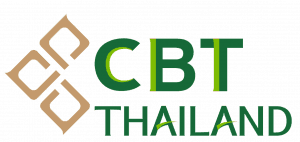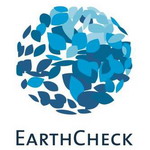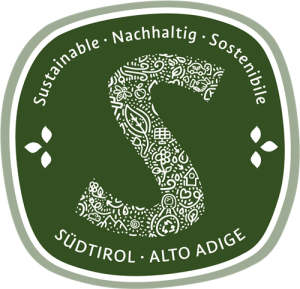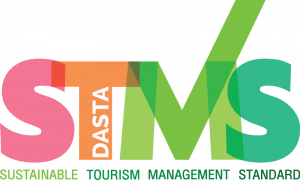GSTC-Recognized Standards for Destinations
GSTC-Recognized Standards are sustainable tourism standards that adhere to and are equivalent to the GSTC Criteria. This means that the GSTC Criteria are included within the set of standards owned by a Certification Body or a local, national, or specialized tourism organization.
GSTC-Recognized means that a sustainable tourism standard has been reviewed by GSTC technical experts and the GSTC Assurance Panel, and deemed equivalent to the GSTC Criteria for sustainable tourism. This means that the GSTC has verified that the standard aligns with the GSTC Criteria and that any additional clauses do not contradict GSTC Criteria requirements. GSTC Recognition does not ensure that the certification process is reliable, only that the set of standards used to certify includes the minimum elements to ensure sustainability. A Certifying Body that utilizes a GSTC-Recognized standard may apply for GSTC-Accreditation which relates to the quality and neutrality of their certification process.
The following standards have been Recognized as aligned with the GSTC Destination Criteria
(visit here for GSTC-Recognized Standards for Hotels)
(visit here for GSTC-Recognized Standards for Tour Operators)
NOTE:
- This is a list of standards. GSTC has NOT analyzed the quality of the process of certification of these standards except those that have been accredited by GSTC.
- GSTC does NOT certify directly. The GSTC Criteria appear in this list to clarify the point that Certification Bodies that gain accreditation have the option to certify by using their own GSTC-Recognized standard or by using the GSTC Criteria.
Biosphere Responsible Tourism Standard for Tourism Destinations
Biosphere Tourism is a standard by the Responsible Tourism Institute (RTI), an international organization that has been promoting for more than 20 years responsible tourism at an international level. Through the Biosphere brand, the RTI promotes Sustainable Development by measuring the contribution of tourism to the 17 Sustainable Development Goals (SDG) of the United Nations and the indications of the Paris Agreement against Climate Change.
Cabo Verde Sustainability Standard for Destinations
The Cape Verdean Standard of Sustainability for Destinations was created by initiative of the Institute for Quality Management and Intellectual Property (IGQPI), to provide guidelines to the organizations integrating the Destination, so that the management of the Destination is based on best practices of sustainable tourism. This standard is based on four pillars: Sustainability Management System, Environmental Dimension, Social Dimension and Economic Dimension.
Criteria for Thailand’s Community-Based Tourism Development
The Criteria for Thailand’s Community-Based Tourism Development (CBT Thailand) has been used as an important tool for continuous planning, operating and evaluating outcome of community-based tourism development in Thailand. The criteria help to build immunity for communities to be aware of their capacity and development standpoint, so the community can strive to yield the benefits from tourism while strengthening their local resource management which is the foundation for “Sustainable Community-Based Tourism Development”.
EarthCheck Community Standard
EarthCheck Destination Standard assists organisations and communities to achieve sustainable outcomes. The EarthCheck Standards are living documents which reflect the progress within the science and technology pertaining to certification for a sustainable travel and tourism industry. To maintain their currency, all EarthCheck Standards are periodically reviewed, and new editions are published.
Green Destinations Standard
The Green Destinations Standard (GDS) is a comprehensive assessment & reporting system to evaluate, monitor and improve the quality and the sustainability of all destination types, e.g. towns, cities; protected areas; ecotourism, regional and country destinations. GDS is used by 250 destinations in Awards programs (incl. National Tourism Board Slovenia, QualityCoast, Sustainable Top 100, ITB Top 100 Awards) and GSTC-Accredited GD Certification. It applies criteria, management guidelines, and indicators. GDS supports strategic destination development, benchmarking, monitoring UN-SDG adherence, creating SWOT and project impact assessment, tourism quality profiles, and information supporting destination visibility, by Booking.com affiliate BookDifferent.com, Travelife for Tour Operators, and Viami.
GreenStep Sustainable Tourism Destination Standard
GreenStep’s Sustainable Tourism standard is used by GreenStep Solutions in their assessment and certification program which provides tools, resources, and consultative support to destinations and businesses across the tourism industry. The Sustainable Tourism standard enables tourism destinations to measure their sustainability performance in several key categories; management, social, economic, natural, cultural, and environmental.
Indonesia Sustainable Tourism Destination Standard
The Sustainable Tourism Destination Standard for Indonesia (STD) was developed to guide the sustainable development of tourism destinations in Indonesia. Recognizing the growing demand for travel to its many appealing destinations, the Ministry of Tourism seeks sustainable development at each of them.
“The Sustainable Tourism Destination (STD) Standard will promote Indonesia as a hub and an epicentrum for sustainable tourism certification in ASEAN and Asia Pacific,” says Indonesian Minister of Tourism Arief Yahya. “The Ministry Of Tourism has already endorsed 20 regions to be designated as pilot projects for the STD Standard and has also endorsed STD Standard implementation in 10 priorities destinations.”
Innovation Norway Sustainable Destination Standard
Innovation Norway’s Sustainable destination standard includes 45 criteria and 108 indicators to be measured, registered and monitored. The standard covers nature, culture, environment, social values, community involvement and economic viability. Measurable and continuous development are ensured through performance counts and renewing the brand every three years.
Japan Sustainable Tourism Standard for Destinations (JSTS-D)
The Japan Sustainable Tourism Standard for Destinations (JSTS-D) which is based on the GSTC Criteria for Destinations, was developed by Japan Tourism Agency (JTA), Ministry of Land, Infrastructure, Transport and Tourism during 2019. JSTS-D consists of 47 criteria with added Japan-specific features. The standard development committee consisted of academia, UNWTO, JNTO, JICA, JATA, local governments, JTA departments, and was chaired by Dr. Kumi Kato. JSTS-D was compiled as a comprehensive booklet, including a range of resources, how-to use manual, good practices, glossary, templates, and useful links. As part of the development and implementation project, a national survey was conducted among Japan’s 1765 local governments to benchmark the state of sustainability nationally.
Korea Sustainable City Tourism Destination Standard

Mountain IDEAL Destinations Standard
The Mountain IDEAL destination standard has been developed to address sustainability in mountain environments that include winter and summer activities. These unique challenges and opportunities include issues like water and energy use related to snowmaking and snow melting systems, affordable housing for residents and seasonal employees, collaborating with public land managers and the business community, and embracing mountain cultural heritage. Sustainable Travel International, Walking Mountains Science Center, and other
Pacific Sustainable Tourism Destination Standard
The Pacific Sustainable Tourism Destination Standard was developed by the Pacific Tourism Organisation (SPTO) and its 20 member nations to support improved sustainability in tourism as required in the Pacific Sustainable Tourism Policy Framework. SPTO recognises that its member nations are at different levels of development, therefore the intent of the standard and indicators within the standard will help Pacific destinations inform their approach to improving sustainable tourism practices. Pacific nations can also use the Pacific Sustainable Tourism Destination Standard as the basis to develop their own national level sustainable tourism standard if desired. Sustainability is an ongoing journey and the Standard is another step on that journey to inspire meaningful actions. Success in the implementation of the Pacific Sustainable Tourism Destination Standard requires financial and technical resources at national and regional level, hence interested development partners and donors are invited to contribute where feasible in the implementation process.
South Tyrol’s Sustainable Tourism Standard
Together with local tourism organisations, business associations, companies and experts, the sustainability program Tourism South Tyrol was started in 2021. The program is based on the GSTC Criteria and has been adapted to South Tyrolean conditions. The result of this process is the sustainability standard for tourism in South Tyrol.
Thailand’s Sustainable Tourism Management Standard
DASTA’s Thailand’s Sustainable Tourism Management Standard has been created for managing tourism and aims at helping all types and sizes of tourism-related organizations to manage tourism systematically and sustainably. It is expected to enable those related organizations to achieve a performance that is higher than the basic level required by law. These standards, therefore, can be challenging for organizations that want to improve the efficiency of their operation, leading to ’Sustainable Tourism.’
TourCert Destination Criteria
All criteria catalogues of TourCert are based on the international quality and environmental management standards according to ISO and EMAS as well as the ISO guidelines for corporate responsibility (ISO 26000) and are also oriented to the international regulations of the GSTC.
GSTC Criteria
The GSTC Criteria serve as the basis for determining whether other standards are “GSTC Recognized”. That means that by definition the GSTC Criteria can be considered “Recognized.” It also means that any Certification Body that uses the GSTC Criteria for their certification program is using a GSTC Recognized standard. Please note that GSTC Accredited means that a Certification Body uses the GSTC Criteria or another GSTC-Recognized set of standards to certify, AND has undergone a rigorous verification process by the GSTC to verify that their certification program is neutral and competent.
















